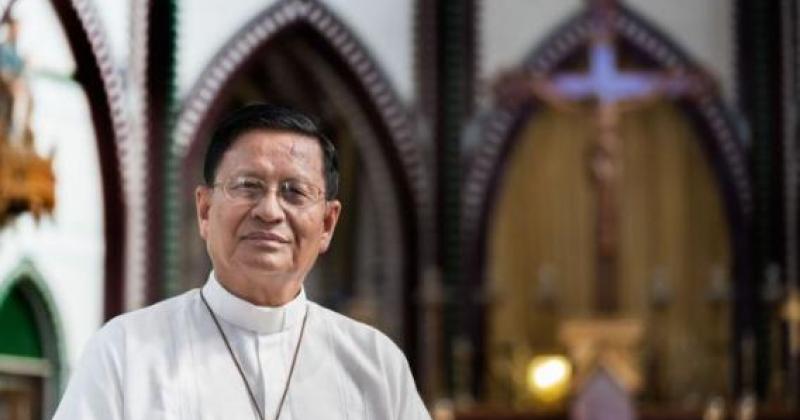The new Conference on Ethnic Minorities marks a first agreement on decentralization: for the Church, 2017 will be “the Year of Peace”
The peace process in Myanmar is moving forward and the country is heading towards a federal system: "After 50 years of centralized government, dominated exclusively by the Burmese ethnic group of Buddhist religion, decentralization represents a good solution that would improve the country”, Cardinal Charles Maung Bo Says in a conversation with Vatican Insider.
The recent Peace Conference (May 24-29) brought together in Yangon around 1,400 delegates, between representative of the government, parliament, military, along with political party leaders, members of the armed groups, civil society activists and religious leaders.
The meeting reached an agreement on 37 of the 41 points under discussion - political, economic and social issues that outlined a Union founded on democracy and federalism. The ultimate goal is to reach a definitive peace agreement, the basis for drawing a federal state. Participants to the conference agreed it was a great opportunity for national dialogue, which is a good starting point. Below, Cardinal Bo expresses his wish for the future of Burma.
How would you asses the recently concluded Peace Conference? What hopes does it leave to the country?
"We have said for a long time that priority is peace with ethnic minorities. The agreement reached is undoubtedly a step towards a federal system that would surely improve the country. Decentralization and a greater regional autonomy are a solution respectful of the plurality of souls, ethnicities and cultures that exist in Burma. Today, it is urgent to work for a fair distribution of the profits from the exploitation of the immense natural resources present in the various territories. It is true that some armed groups did not accept to cease-fire, but prospects remain encouraging. The important thing is not to close the door to dialogue and to continue this road map for national pacification. We are all called to build a harmonious and peaceful country. "
Some observers considered it a failure...
"I do not believe so. It is important to maintain the standard of gradualism and be patient. Take a small step after the other. One cannot openly go against the army (who controls key areas within the government such as Defense and Home Affairs) or think of changing the nation overnight. Let us recall that we are coming out of a dictatorship. In Burma, there are some positive changes in progress on issues such as transparency and attention to people's instances. We must be cautious and build the common good of the country slowly. "
What is the role of religious leaders in this circumstance?
"Our role is decisive. Ours is a nation in which spirituality and religion are still very significant factors for people. Religious leaders can be agents of peace mediation. I would like to recall that in Burma there are 500,000 Buddhist monks and 70,000 Buddhist Sisters who constitute a true "peace army", which can positively influence the military, who mostly belong to the Buddhist community. Leaders of other religious communities (we have 2,500 nuns and 700 Catholic priests) can contribute, as we have stated in a recent inter-religious meeting. "
Among the minorities are the Rohingya Muslims: what do you think of the crisis that concerns them?
"I have visited the state of Rakhine and at present the situation seems calm, though there are restrictions and some displaced persons. The issue that concerns them has ancient roots and is rather complex: the government has its hands full dealing with them. Even Aung San Suu Kyi has been criticized: the minister said that we must deepen the affair, since many Rohingya have been recently arriving from Bangladesh. She did not deny that there is violence or that there are problems, but perhaps using the expression ethnic cleansing is too strong."
Are you in favor of an investigation and an UN mission?
"We are in favor of deepening the issue, even with the contribution of the UN. It should be noted that, according to the current Constitution, Aung San Suu Kyi has no direct power over an issue like this, the Ministry of Interior does. Of course, we ask the whole government to act according to principles that respect the dignity and fundamental rights of every person. "
Burma has established diplomatic relations with the Holy See: what does it mean for you?
"We are very happy with this development, which we supported. We will continue to maintain good relations with the government, working together and building a nation where every man, woman and child of every race and religion is recognized as a fellow citizen and our brother in humanity. With this spirit, the Burmese Church (500,000 baptized, about 1% of the population) declared 2017 "Year of Peace" And our contribution will be with prayer, with awareness-raising, with social commitment, especially within the fields of education and health. In a word: by announcing and living the Gospel ».
